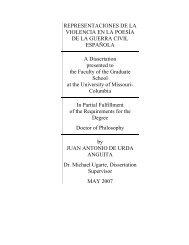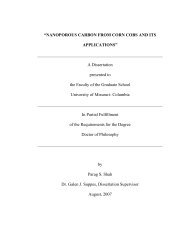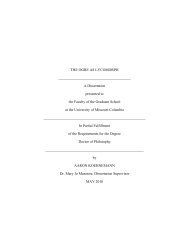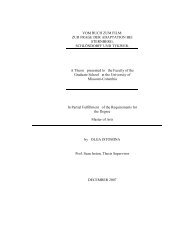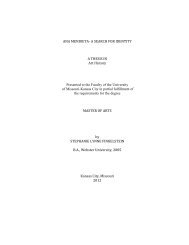Social Construction of Reality - Bad Request
Social Construction of Reality - Bad Request
Social Construction of Reality - Bad Request
You also want an ePaper? Increase the reach of your titles
YUMPU automatically turns print PDFs into web optimized ePapers that Google loves.
Legitimation. Legitimation, the third and final social construction <strong>of</strong> reality<br />
concept, produces new meanings that serve to integrate the meanings already attached to<br />
disparate institutional processes” (Berger & Luckmann, 1967, p. 92). It takes place in<br />
four phases and is important because it results, according to Berger and Luckmann, in the<br />
“full integration <strong>of</strong> discrete institutional processes” (p. 96). Legitimation is grounded in<br />
discourse and is built upon objectification and institutionalization. This concept is<br />
important to the study because it raises the expectation that the resulting model could<br />
function as a mechanism capable <strong>of</strong> integrating discrete philosophies and processes and<br />
<strong>of</strong> uniting them under the umbrella <strong>of</strong> the three School District values: culture <strong>of</strong><br />
collaboration, integrity <strong>of</strong> action, and commitment to excellence.<br />
There are four phases <strong>of</strong> legitimation. It is useful to think <strong>of</strong> these phases in terms<br />
<strong>of</strong> sequential stair steps leading to the goal <strong>of</strong> a fully integrated organization. Full<br />
integration is defined in this context as an organization whose processes work together to<br />
ensure district values are reified. For this to be the case, individuals must come to<br />
understand the value <strong>of</strong> “performing one action and not another” (Berger & Luckmann,<br />
1967, p. 93-94).<br />
34




